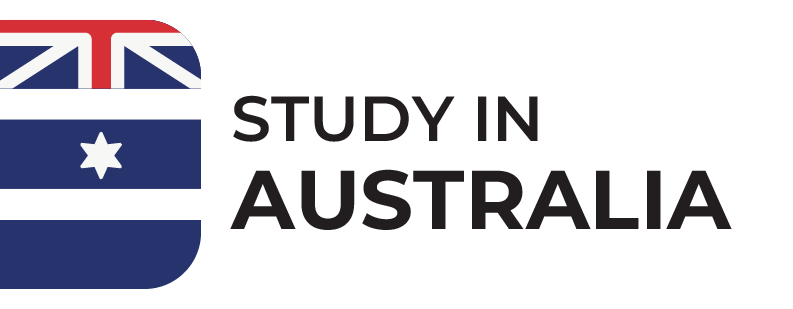If your curiosity is driven towards exploring how the world functions and how we as humans allocate scarce resources, be it for production, distribution, or consumption, then studying economics is the best way to find these answers.
As a highly-developed country with an innovative education system, Australia is not only a great case study for how the economy works but also a great study destination with high-ranking universities in the subject of economics.
Here’s everything you need to know about studying economics in Australia:
Table of Contents
Benefits of Studying Economics in Australia
Home to some of the most reputable universities in the world, Australia offers the best of both worlds for international students: excellent education and a great quality of life.
A high number of Australian universities have some of the best programs and produce high-impact research. In fact, when it comes to the subject of Economics and Econometrics, six Australian universities were ranked in the top 100 global universities in 2022.
If you decide to study economics in Australia, you will be taught by experienced professors, you will be learning in modern facilities, and you will have access to a multitude of resources.
If you decide to work in Australia after you graduate, an economics degree will open many doors for you. While pure-economics role opportunities are more competitive, other related roles, such as financial broker positions or financial investment advisers and managers, are expected to grow by 14.2% and 10.7%, respectively.
Moreover, an economics degree equips students with transferable skills such as critical thinking, problem-solving, data analysis and interpretation, mathematical aptitude, and communication skills. These skills prepare you to work in various industries; therefore, you will be able to use your expertise in many different settings.
Careers with an Economics Degree
An economics degree does not limit you to a specific industry or field of work. Employment sectors for this degree can range from the local and national government to banks, insurance companies, accountancy firms, academia, and independent roles.
You can also incorporate elective courses into your economics degree, which will allow you to take on roles in other fields, such as law or the technology industry. You’ll be pleased to know that some of these roles made the list of the highest-paid jobs in Australia, therefore, if you are money-driven, a career in economics in financial services can be quite lucrative.
Here are the most common careers for economics graduates:
- Economist
- Financial Risk Analyst
- Data Analyst
- Accountant
- Financial Planner
- Business analyst
- Policy Analyst
- Financial Consultant
- Investment Adviser
- Actuary
- Economic Researcher
- Energy and Resource Economist
Entry Requirements for Economics Degrees in Australia
As with other degree programs, each university sets its own requirements and prerequisites for economics programs. If you want to enrol in an undergraduate or graduate program in economics, you will have to check the university-specific requirements on their website or by enquiring through emails.
English Proficiency
The majority of economics undergraduate and graduate degrees in Australia will require a certain level of English proficiency and assumed knowledge of mathematics. For example, the Bachelor of Economics program at the University of Queensland requires an IELTS Academic overall score of 6.5 with a minimum of 6.0 in each test component or equivalent English proficiency test scores, and Queensland Year 12 Mathematical Methods (Units 3 & 4, C) or equivalent mathematics knowledge.
Previous Education
Undergraduate degree programs in economics acceptance scores should be equivalent to the required Australian Year 12 ATAR (Australian Tertiary Admission Rank) score.
For master’s degree applicants, it is typically required to have an accepted bachelor’s degree from an Australian university or another institution of equivalent standing, as well as a minimum average mark ranging typically from 65% to 75%, depending on the university.
Cost of Economics Degrees in Australian Universities
If you want to study economics in Australia, it is important to calculate tuition fees and other expenses in order to plan ahead. Fees for economics programs here depend on the university, the type of program, and other factors.
Bachelor’s degree fees in 2023 in the top Australian universities for economics range from AUD 42,816 per year to AUD 49,816 per year. For master’s degree programs in these universities, fees can range from AUD 44,144 per year to AUD 54,000 per year.
Here are the costs per year for undergraduate economics programs at some of the best Australian universities in this field:
| University | Degree | Cost |
| Australian National University (ANU) | Bachelor of Economics | AUD 46,680 per year |
| The University of Melbourne | Bachelor of Commerce (Economics major) | AUD 46,000 per year |
| The University of New South Wales (UNSW Sydney) | Bachelor of Economics | AUD 45,160 per year |
| Monash University | Bachelor of Economics | AUD 49,200 per year |
| The University of Sydney | Bachelor of Economics | AUD 49,500 per year |
| The University of Queensland | Bachelor of Economics | AUD 44,288 per year |
| University of Technology Sydney | Bachelor of Economics | AUD 42,816 per year |
These are the yearly fees for economics master’s degree programs at the top Australian universities for economics:
| University | Degree | Cost |
| Australian National University (ANU) | Master of Economics | AUD 46,680 per year |
| The University of Melbourne | Master of Economics | AUD 47,712 per year |
| The University of New South Wales (UNSW Sydney) | Master of Applied Economics | AUD 48,700 per year |
| Monash University | Master of Economics | AUD 50,000 per year |
| The University of Sydney | Master of Economics | AUD 54,000 per year |
| The University of Queensland | Master of Economics | AUD 44,144 per year |
| University of Technology Sydney | Master of Behavioural Economics | AUD 44,256 per year |
Economics Degree Program Structures
Program structure and length depend on the university and the type of degree you plan to pursue. Bachelor’s degrees in economics typically take three to four years to complete if you intend to study full-time or six to eight years for part-time studies.
The duration of master’s degree programs is usually one and a half to two years, depending on the credit points or previous knowledge in the field.
Bachelor’s degree programs will span core courses on economics, economic history, introduction to macroeconomics and microeconomics, as well as courses for the major you pick and elective courses.
Master’s degree programs and other postgraduate programs include more advanced courses, case studies, and specialised knowledge in a specific study field of your choice.
Both undergraduate and graduate economics programs can include a portfolio, internship, or capstone unit that allows you to consolidate your knowledge in the field.
These are some of the courses that may be included in an economics undergraduate degree program:
- Introduction to Economics
- Introduction to Macroeconomics
- Introduction to Microeconomics
- Economic History
- Econometrics
- Mathematics for Economics
- Cost-benefit Analysis
Economics graduate degree programs can include some of the following units:
- Microeconomic Analysis
- Macroeconomic Analysis
- Cost-benefit Analysis and Project Evaluation
- Mathematical Techniques for Economic Analysis
- Behavioural Economics
- Econometric Methods and Modelling
- Issues in Development Policy
Best Universities to Study Economics in Australia
If you want to stand out and learn from some of the best programs, below we have listed the highest-ranking Australian universities in the subject of economics along with some of the economics-related courses offered:
Australian National University (ANU)
The Australian National University (ANU) is the highest-ranked university in Australia overall and in the field of economics for good reason. Its College of Business & Economics includes numerous courses in the field:
- Bachelor of Economics
- Bachelor of Economics (Honours)
- Bachelor of Politics, Philosophy and Economics
- Bachelor of Commerce (Economic Studies major)
- Master of Economics
- Master of International and Development Economics
- Master of Environmental and Resource Economics
- Master of Economics
- Master of Applied Economics
- Master of Financial Economics
- Master of Economic Policy
- Master of Philosophy, ANU College of Business and Economics
- Doctor of Philosophy, ANU College of Business and Economics
The University of Melbourne
Another leading Australian university, the University of Melbourne offers some excellent undergraduate and postgraduate economics programs:
- Bachelor of Commerce (Economics major)
- Bachelor of Arts (Economics major)
- Graduate Diploma in Economics
- Master of Economics
- Master of Applied Econometrics
- Doctoral Program in Economics
- Doctoral Program in Decision, Risk and Financial Sciences
The University of New South Wales (UNSW Sydney)
With more than 334,000 alumni from all over the world, the University of New South Wales (UNSW Sydney) offers a vibrant community and high-quality education.
Here are some of the economics programs offered here:
- Bachelor of Economics
- Bachelor of Economics (Honours)
- Bachelor of Politics, Philosophy and Economics
- Bachelor of Commerce (Business Economics major)
- Bachelor of Commerce/Economics (double degree)
- Graduate Certificate of Economics
- Master of Applied Economics
- Master of Commerce (Economics specialisation)
- Master of Philosophy (MPhil) Commerce & Economics
- Doctor of Philosophy (PhD) Economics
Monash University
Monash University is a research-intensive university with a modern approach to teaching. With students from over 170 countries, this university is a great choice if you want to study economics in Australia.
Here are some of the courses you’ll find at Monash:
- Bachelor of Economics
- Bachelor of Politics, Philosophy and Economics
- Bachelor of Commerce (Economics major)
- Bachelor of Arts (Economics major)
- Bachelor of International Business
- Graduate Diploma of Economic Analytics
- Master of Economics
- Master of Applied Econometrics
- Master of Philosophy in Economics
- Doctor of Philosophy in Economics
The University of Sydney
Founded in 1850, the University of Syndey is known as the oldest Australian university and one of the pillar institutions of Australian tertiary education.
Some of the economics degrees at this university include:
- Bachelor of Economics
- Bachelor of Economics (Honours)
- Bachelor of Economics and Bachelor of Laws
- Bachelor of Economics and Bachelor of Advanced Studies
- Master of Economics
- Master of Economic Analysis
- Doctor of Philosophy – Schools of Economics
The University of Queensland
With world-class facilities and a network of 88,000 alumni in its Faculty of Business, Economics and Law, the University of Queensland is another outstanding choice for future economics students.
Some of the programs offered include:
- Bachelor of Economics
- Bachelor of Economics (Honours)
- Bachelor of Arts (Economics major)
- Bachelor of International Studies (Economics major)
- Politics, Philosophy and Economics (Honours)
- Master of Economics
- Master of Advanced Economics
- Master of Applied Economics
- Master of Economics and Public Policy
- Master of International Economics and Finance
University of Technology Sydney
Last but not least, the University of Technology Sydney is a modern technology-focused university with great undergraduate and graduate economics programs:
- Bachelor of Economics
- Bachelor of Economics (Honours)
- Bachelor of Property Economics
- Bachelor of Business (Economics major)
- Graduate Certificate in Behavioural Economics
- Master of Behavioural Economics
- Doctor of Philosophy in Economics
By studying economics in Australia, you will hone your skills in the field and be prepared for a steady job market in this country. Apart from the superior programs, Australian universities have vibrant student communities and campuses that will make it easy for you to feel right at home once you’re here.

